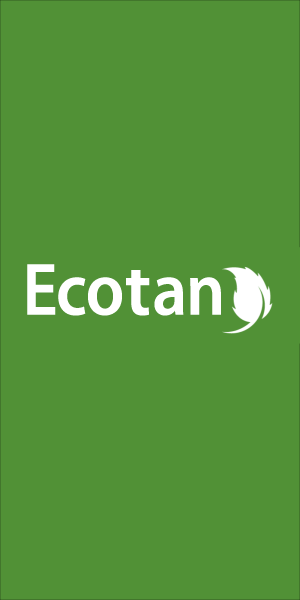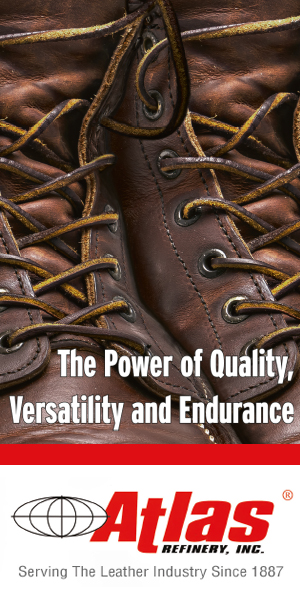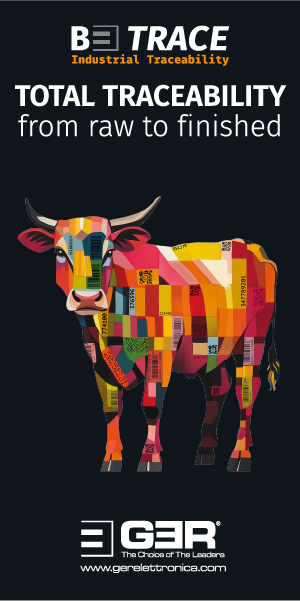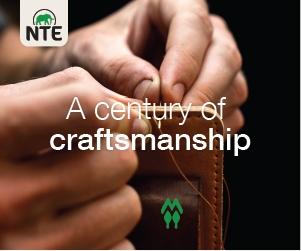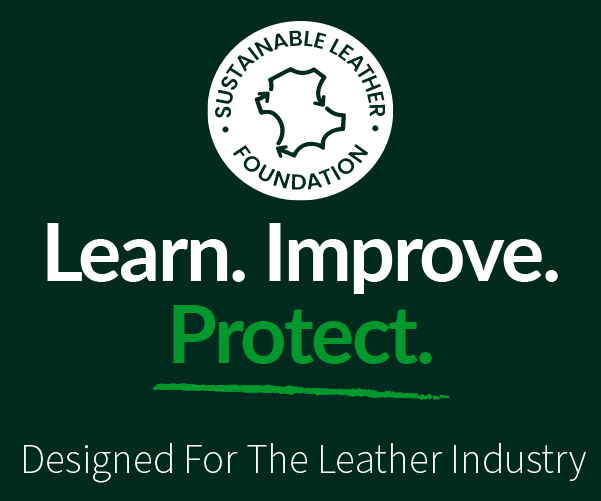Elico, Addis Ababa, Ethiopia

Proud of its status as Ethiopia’s only tannery currently exporting only finished leather, Elico has plans in place to increase every area of its output and double sales. It is optimistic about the future.
Addis Ababa is one of Africa’s fastest growing cities and it won’t be long before the cranes and construction teams are within touching distance of the Elico tannery, founded in 1957 in what used to be countryside, close enough to the Akaki River to make leather production possible.It was the brainchild of Armenian tanners who had fled to Africa after World War II and won the approval of Emperor Haile Selassie I, who presided over the official opening ceremony; the commemorative plaque still has pride of place at the entrance to one of the main production units. Yes, units in the plural because there are separate lines for processing bovine hides (around 200,000 a year) mostly to make shoe upper leather for the domestic market, for turning skins from Ethiopia’s unique and highly appreciated highland sheep into glove and garment leather (1.2 million skins a year), and finally for processing goatskins to make suede for shoe uppers (around 1 million skins a year). Elico’s sheep and goat leather mostly goes to high-end clients in Italy, Germany and Japan. Demand is strong.
Political developments led to the expulsion of the Armenian owners in 1975 and the tannery passed into state ownership. The state owned and ran the facility until the 1990s when the military government was overthrown. In 1997, current owner Sheikh Mohammed Hussein Ali Al Amoudi added Elico to the list of his investments in Ethiopia, his homeland (the billionaire is based in Saudi Arabia some of the time too, but his ambition is to see a prosperous Ethiopia). Throughout these changes, production has been continuous and more recent developments have included a finishing plant and a small finished goods factory, with five retail outlets throughout the city. Under the leadership of general manager, Brook Debebe, Elico now has 1,300 employees, more than it had under public ownership.
Livestock population
Elico is able to make around 25 square-feet of leather on average from each bovine hide, 4.5 square-feet from sheepskins and slightly more, about five square-feet, from goat. With Sudan dividing into two countries on July 9, Ethiopia is proud that it will become the country with the largest livestock population in Africa. The government calculates current totals to be 23 million goats, 25 million sheep and 41 million head of cattle. The livestock population is on the increase because the government is offering specific support to farmers to help them secure enough supplies of feed and water to run larger herds. In areas with plenty of rain, farmers are concentrating on food crops, but in drier areas, distribution of water and feed is improving and livestock farmers are taking advantage. “The US and the European Union have a choice about whether or not to invest in agriculture,” Brook Debebe says. “We don’t have a choice; all we have is land and people. But we have achieved growth of 11.4% on average over the last five years and this has been led by agriculture. There has been no drought for the last eight years, in fact we have ended up being flood-threatened in some areas, and we are producing enough food to feed ourselves, but there is still massive scope for us to increase this.”
In terms of the pattern of animal slaughter and meat provision, Ethiopia’s particular circumstances are well documented. The population is religiously mixed between Christians (mostly Ethiopian Orthodox) and Muslims. Periods of fasting or at least abstention from meat are long and spread throughout the year: not just Lent for the Christians, but also the weeks of Advent leading up to Christmas and certain days following Pentecost. Muslims observe daytime fasts during the holy month of Ramadan, but where Ramadan falls in the western calendar or the 13-month Ethiopian calendar varies from year to year. Conversely, at the times of great feasts such as Christmas, Easter, Eid-ul-Fitr and Eid-ul-Azha, as well as at Ethiopian New Year (in September) slaughter is high, putting the system of hide and skin collection under considerable strain, although better-equipped abattoirs throughout the land are helping.
Elico receives hides and skins from abattoirs and from traders who usually carry out salting and packing in their own territories. Salted material can be kept for up to three months because, at 2,350 metres above sea level, Addis Ababa is far from the hottest place in Africa. Elico has a policy of providing salt to some of the hide and skin traders it works with. It will take time for this idea fully to bear fruit; not all the traders are using the salt, and some of them are using it more than once. At times of high levels of slaughter, Elico’s raw materials warehouse can store up to 200,000 skins, of which it processes 9,000 a day on average.
Economic situation
Religious factors aside, the economic situation also plays an important part in determining meat consumption. Even outside periods of fasting, ordinary families can usually only afford to eat meat about twice a week. The staple diet is vegetables and the cereal crop teff, usually milled into flour and baked into spongy, savoury pancakes, from which people round the table break off pieces to dip into an array of colourful, spicy dishes made from meat, perhaps, but also from tomato, pepper, chilli, onion, beans, potato and so on.
In spite of progress among livestock farmers and a rising animal population, the price of hides and skins is going up in Ethiopia. The current cost of a sheepskin is around $4, double the price compared to a year ago. The team at Elico says this situation is the result of “overseas investors making life difficult for local tanners”. This is a reference to investors from Asia who have become actively involved in the tanning industry in Ethiopia. Unconfirmed reports suggest some overseas operators have been paying high prices to gain control of raw material supply while, at the same time, paying salaries at less than half the level on offer at Elico and other companies. There is no minimum wage. The government in Addis Ababa is taking steps to counter this practice: it will limit overseas investment in tanneries and will ban exports of crust to encourage value addition from January 1, 2012.
Elico first won ISO accreditation in 2004 and its underlying principles of transparency and shared information feature strongly in the company’s culture. This applies to its purchasing strategy too. “Our criteria for choosing suppliers for chemicals and machinery are simple,” Mr Debebe says. “The quality of a supplier’s product must be high, and it must be consistently high. Its performance must be as expected. And we check. We test an organisation’s chemicals before issuing a goods receipt. Obviously we look at delivery too; some companies deliver on time, others seem to have great problems managing that, and without naming names, I can tell you that we recently black-listed one quite big chemical company for a time. If chemical companies are supplying products we depend on and fail us, we would have to close down our production for a time. The other big issue we have with chemical suppliers is consistency of price, and we can also tell if a product that ships to us with a European price tag was really made in somewhere else.”
Head of planning, Setiye Kassa, explains that in September 2010 the Ethiopian government bestowed on Elico the honour of becoming the first company in the leather industry to achieve the status of ‘authorised economic operator’, which means any inspection of chemical imports can now take place at Elico’s warehouse rather than at customs.. The government wants to promote exports as its main way of generating much-needed overseas currency. The prime minister, Meles Zenawi, personally chairs an export industries committee and is working hard to make life easier for companies like Elico, Brook Debebe says. “These are the companies that bring in foreign exchange and create jobs,” he adds. “You simply cannot rely on the domestic market for this because ours is not enough of a consumer society yet.”
Government influence
The Ethiopian government has long taken an active interest in the leather industry. Elico was one of 12 tanneries and footwear production facilities in public ownership for decades under the National Leather Corporation. It’s no coincidence that Brook Debebe, who took over the running of Elico in September, has had a long career in government. He started in the tourism sector, helping to promote Ethiopia as a tourist destination (it can boast 13 months of sunshine!) and running around 70 state-owned hotels. Later he delivered training at the government-run Management Institute, with marketing as his main specialism, before transferring to the prime minister’s office in 1985. He stayed there Until 1998 when he became economic services bureau head and quickly took up ministerial duties. He was deputy minister of external economic cooperation, with special responsibility for economic co-operation and, later, vice-minister for trade and industry for six years. His next appointment was as Ethiopia’s ambassador to the European Union and the Benelux countries. “During all this, I was board chairman of various companies, so I have had experience in business too,” he explains. “Wherever you go, you have to manage people, and it’s the same here. Part of my role consists of challenging the people here to come up something innovative and already this year we have saved eight million birr (more than $472,000). In August, we will meet with the labour union and share these benefits out in the shape of bonuses and salary increases.”
Ideas that have helped the company save money in recent months have included research and development work on product modification, as well as new product development focusing on optimisation of resources. The company feels it has achieved substantial improvement and is expecting a total saving of nearly $500,000 at the end of the budget year. Workers are also involved in coming up with innovative ideas and two recent successful examples have been the use of traditional typewriter ribbon apply fashion finishes to bovine hide.
Social life
One of Elico’s customers demands social audits of all its suppliers. For this, qualified auditors from South Africa have visited the company’s facilities in Addis Ababa to check on issues such as child labour, health and safety and fire policy. The company has passed each test. At an even more human level, one of the most memorable things Mr Debebe has done since taking up his appointment in September 2010 has been to ask previously dismissed workers to return to Elico. In a restructuring exercise that took place before his arrival, 200 Elico workers were made redundant. Finding himself in need of extra workers soon after taking over, Mr Debebe called them back. “Some of them were in tears of relief coming back to the tannery again,” he explains, and he points out that for workers to regain their jobs in Ethiopia was particularly unusual. “We have been urged by consultants to fire workers if they make a mistake. But if you fire them in this country, the likelihood is that they will never work again in their lives.”
All workers have health insurance, and if an employee is sick, he or she can receive full pay plus medical expenses for three months. Specialist teams receive special care. For example, the 12-strong group of men and women who carry out quality sorting of sheepskins at pickle stage each receive an annual eye test. The canteen is subsidised so that a hot dish that would cost 25 birr ($1.50) in even a modest restaurant costs only five on site. A sandwich costs 3.50 birr; coffee costs 1 birr and tea just 50 cents.
Among the benefits for workers is that the tannery premises include a full-size football pitch, as well as smaller areas on which people can play five-a-side or volleyball. Popular among the workers at lunchtimes, or at weekends, these open spaces also attract children from the community that lives close to the tannery. Elico has also agreed recently to build a new road in the area and to set up communal water taps. The water pipe is there, and some members of the community have spent money putting taps in, usually charging neighbours a fee to take water from their taps. A communal resource funded by the tannery will eliminate the need for this.
Product flow
When Mr Debebe arrived at the tannery, there was a large quantity of finished leather in stock. He reduced the price and sold it off to make the company’s supply chain more fluid. It was Ethiopian New Year when he took over, so, after nationwide feasts, a large quantity of new raw material had just become available. His instinct was to borrow money from the bank and buy skins. In the end, he acquired 300,000 of them. Advice from inside the company was that there are better times of year to buy skins, owing to the comparatively high level of damage at that time of year. He invited prominent customers from Italy to visit at just this time, and when they saw product flowing through the tannery, they put their names down to acquire some of it.
At the moment, none of the finished goods Elico produces in its own workshop go for export, but there is a trend to focus more on finished products, and the company has been trying to acquire a footwear manufacturing firm with the plan to export at least 40% of the shoes it hopes to make, if possible by becoming an outsource manufacturing partner of a big-name brand. The information the company has is that the government wants to introduce an incentive to makers of finished products, rewarding their efforts to add more value on Ethiopian soil by reducing the tax they pay by 10%. At the same time, as mentioned above, industry observers expect extra taxes on exports of crust to come into force next January. This would give three options to tanneries that take raw material only as far as crust at the moment: increase their prices, install finishing plants (the government has said it will offer loans to help them buy the necessary machinery) or sell their crust to Elico for finishing and export, or for use in Elico’s finished products.
Regardless of what the competition does, Elico has plans of its own. “Our aim is to grow all our operational activities,” explains quality manager, Daniel Akalu. “We have a budget of around $18 million over the next five years to upgrade our machinery. We plan to double sales, currently around $16 million a year in export and domestic markets. We have a plan in place to reach $20 million in sales next year. We are very ambitious.”








